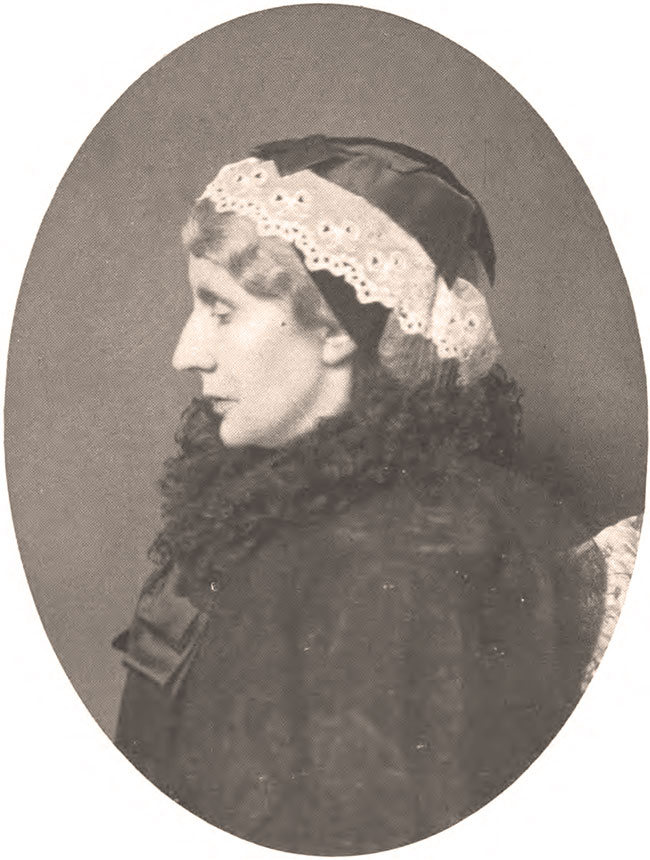BUTLER INSISTED ON THE FUNDAMENTAL RIGHTS OF WOMEN

[Above: Josephine Butler in old age—photo by Elliott and Fry [public domain], reproduced in L. Hay-Cooper, Josephine Butler and Her Work for Social Purity. London: Society for promoting religious knowledge, 1922.]
CHRISTIANS WHO FIGHT TYRANNY and evil today can draw inspiration and learn lessons from the experiences of Josephine Butler and her allies.
Concerned about a rise in venereal disease in its military forces, the British parliament passed at night, and without public debate, the Contagious Diseases Act. The act’s name was intentionally misleading. Contagion was blighting British crops; some members of parliament who had not read the bill thought it addressed that problem. What it actually did, under guise of a medical and military emergency, was to strip women of their fundamental rights. The law gave police near military bases the power to seize any woman they suspected of being a common prostitute. Male doctors would then examine her reproductive organs, place her name on lists, and could quarantine her for weeks. Since the actions that signaled a woman as a “common prostitute” were not defined, abuses were rife. Police seized innocent working women, military sisters, daughters, and mothers. Working hand in hand with pimps, they even used their power to force women into prostitution.
Butler fumed about the law. What drove her to action was the loss of her own six-year-old daughter. The excited girl had fallen to her death from a stairway in front of her horrified mother. The pain of the loss helped her to bond with women who lost their daughters under the Contagious Diseases Act. “I now knew I could say, ‘I understand; I too have suffered!’”
Imploring Christ for help, she threw herself into the fight to get the law revoked. The world fought back with all its usual tricks and Butler and her allies had to find ways to counter them. When medical journals refused to publish their articles, the allies issued their own medical journal. When they were smeared and maligned, they stood in the light, refusing to cower. When some were arrested on trumped up charges, they bravely endured prison. When “fact checkers” denied what was actually happening, the allies gathered statistics and published them along with stories that gave names and dates. When the government doubled down on its wicked scheme, the allies entered the political arena and fought to take control of parliament. When political leaders offered a compromise that retained authoritarian provisions, Butler rejected it. The rights of women had to be upheld. When mobs attacked Butler and her allies, the reformers fled and hid just as anyone else would.
It took two decades to revoke the bad laws. Sad to say, many Church of England churchmen stood on the sidelines or joined those who maligned Butler.
In her old age, after the death of her beloved and supportive husband, George, Butler wrote:
Long ago I asked a gift of God—companionship with Christ. Shall I murmur because, having granted my request, He grants it not in the way that I expected? It is the companionship with Him of the penitent malefactor nailed to a neighboring cross. I cannot grasp His hand, nor sit at His feet, nor lean on His breast, as the beloved disciple did, for I am bound hand and foot, stretched on my cross, till every nerve and muscle strains and aches.
On this day, December 30, 1906, Josephine Butler died. Shortly before her death she said, “Don’t be unhappy. Perhaps I shall be able to help you more there than here!”
—Dan Graves
-----------
For more stories of brave women helping women today, watch the documentary Hope Has a Name at RedeemTV.
For more about fighting sexual exploitation, watch When the Saints
[Hope Has a Name and When the Saints can also be purchased at Vision Video]








